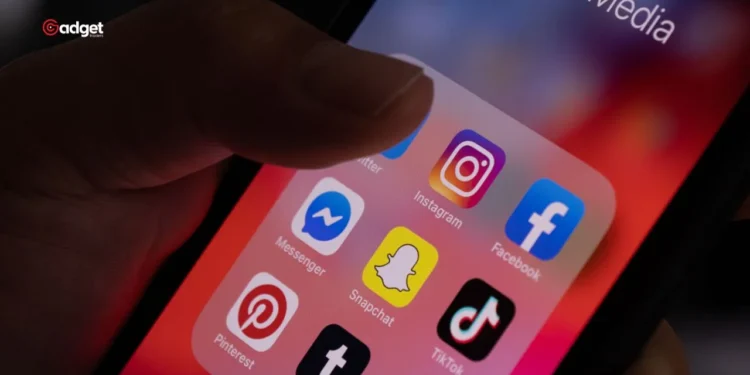In the digital corridors of social media power, where likes, shares, and tweets determine the socio-cultural narrative, Jack Dorsey, Twitter’s cofounder, and Elon Musk, the enigmatic owner of X (formerly Twitter), have ignited a profound discussion on the potentially perilous intersection of technology and free will.
Speaking at the Oslo Freedom Forum, Dorsey expressed deep-seated concerns about the invisible chains that social media algorithms might be forging around our autonomy.

The Weaponization of Social Media
“Social media is the equivalent of a weapon of mass destruction,” Dorsey remarked, echoing the grave sentiments of a modern-day Robert Oppenheimer. Reflecting on the evolution of his creation, he lamented how the platform, initially birthed from the noble ideals of open-source protocols, gradually succumbed to the high stakes of a competitive marketplace.
This shift not only altered its foundational ethos but also, according to Dorsey, transformed it into a tool that could manipulate collective consciousness.
The concept isn’t new but has taken a terrifyingly tangible form with social media behemoths like Facebook, and Google, and now AI-centric firms like OpenAI, where algorithms curate experiences to maximize user engagement, subtly influencing user preferences and decisions.

The Illusion of Choice in a Curated Digital World
Dorsey argues that the very essence of free will is under siege, not by overt censorship or denial of speech, but through the meticulous molding of our preferences by algorithms.
“We are being programmed based on what we say we’re interested in,” he explained. As users interact with algorithmically selected content, a feedback loop is created, reinforcing specific biases and narrowing our exposure to diverse perspectives.
Elon Musk, who acquired and reshaped Twitter into X, supports Dorsey’s viewpoint. “Yeah, Jack is right,” Musk affirmed in a succinct post, highlighting his acknowledgment of the underlying issues despite his commercial stake in the platform.
Transparency Is Not Enough: The Call for a Marketplace of Algorithms
Both tech visionaries agree that mere transparency in algorithmic operations of social media isn’t a panacea. Even with open-source algorithms, as Musk has advocated for X, the complexity and adaptability of these systems make them nearly impenetrable black boxes to the average user.
Dorsey’s solution? A marketplace of algorithms that allows users to choose which algorithmic models they find trustworthy, and the freedom to switch seamlessly among them according to their evolving needs or even develop their own. This, he argues, could restore a sense of agency that is rapidly diminishing under the current paradigm.

The Future and Its Challenges
As we stand on the brink of an era dominated by artificial general intelligence, where tools like GPT-4 by OpenAI are beginning to scrape and analyze vast amounts of data, the stakes are incredibly high.
The battle for the control of these technologies is no longer confined to academic papers or tech incubators but is being played out on a global corporate stage with significant implications for individual autonomy.
“Five companies are building tools that we will all become entirely dependent upon,” Dorsey cautioned, referring to giants like OpenAI, Microsoft, Google’s DeepMind, Meta, and Amazon-backed Anthropic. His warning is stark: without effective checks, we may be moving toward a future where free will could be the price of our unbridled reliance on technology.

Regaining Control in the Digital Age
The conversation initiated by Dorsey and supported by Musk is a clarion call for introspection and action for both policymakers and the public. The digital age promises unprecedented connectivity and benefits but also poses unique challenges to our autonomy and way of life.
Balancing innovation with individual rights will be one of our generation’s defining challenges, demanding not just technological expertise but a robust ethical framework. As we navigate this complex landscape, the choices we make today will define the freedom of our tomorrow.










